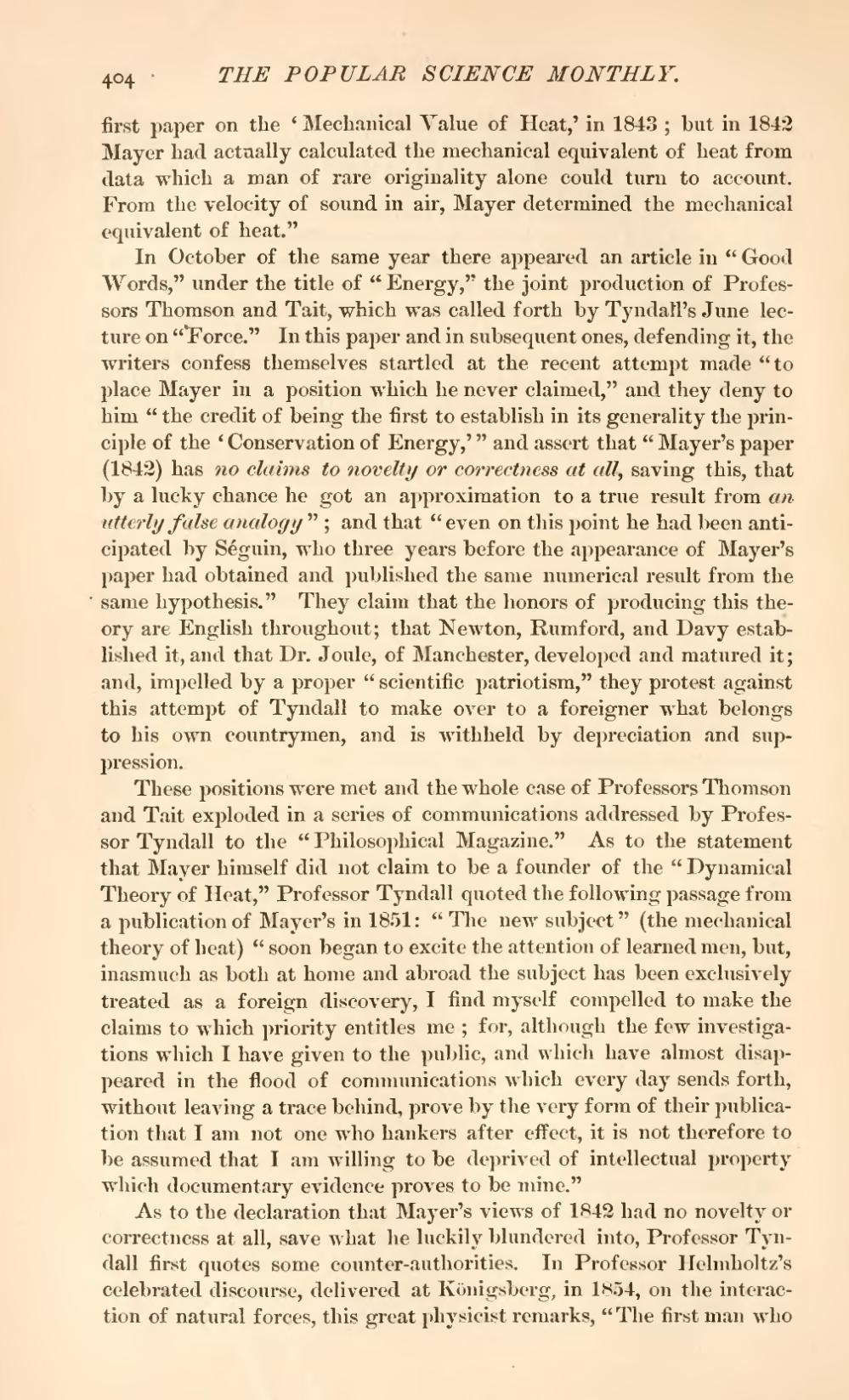first paper on the 'Mechanical Value of Heat,' in 1843; but in 1842 Mayer had actually calculated the mechanical equivalent of heat from data which a man of rare originality alone could turn to account. From the velocity of sound in air, Mayer determined the mechanical equivalent of heat."
In October of the same year there appeared an article in "Good Words," under the title of "Energy," the joint production of Professors Thomson and Tait, which was called forth by Tyndall's June lecture on "Force." In this paper and in subsequent ones, defending it, the writers confess themselves startled at the recent attempt made "to place Mayer in a position which he never claimed," and they deny to him "the credit of being the first to establish in its generality the principle of the 'Conservation of Energy,'" and assert that "Mayer's paper (1842) has no claims to novelty or correctness at all, saving this, that by a lucky chance he got an approximation to a true result from an utterly false analogy"; and that "even on this point he had been anticipated by Séguin, who three years before the appearance of Mayer's paper had obtained and published the same numerical result from the same hypothesis." They claim that the honors of producing this theory are English throughout; that Newton, Rumford, and Davy established it, and that Dr. Joule, of Manchester, developed and matured it; and, impelled by a proper "scientific patriotism," they protest against this attempt of Tyndall to make over to a foreigner what belongs to his own countrymen, and is withheld by depreciation and suppression.
These positions were met and the whole case of Professors Thomson and Tait exploded in a series of communications addressed by Professor Tyndall to the "Philosophical Magazine." As to the statement that Mayer himself did not claim to be a founder of the "Dynamical Theory of Heat," Professor Tyndall quoted the following passage from a publication of Mayer's in 1851: "The new subject" (the mechanical theory of heat) "soon began to excite the attention of learned men, but, inasmuch as both at home and abroad the subject has been exclusively treated as a foreign discovery, I find myself compelled to make the claims to which priority entitles me; for, although the few investigations which I have given to the public, and which have almost disappeared in the flood of communications which every day sends forth, without leaving a trace behind, prove by the very form of their publication that I am not one who hankers after effect, it is not therefore to be assumed that I am willing to be deprived of intellectual property which documentary evidence proves to be mine."
As to the declaration that Mayer's views of 1842 had no novelty or correctness at all, save what he luckily blundered into, Professor Tyndall first quotes some counter-authorities. In Professor Helmholtz's celebrated discourse, delivered at Königsberg, in 1854, on the interaction of natural forces, this great physicist remarks, "The first man who

